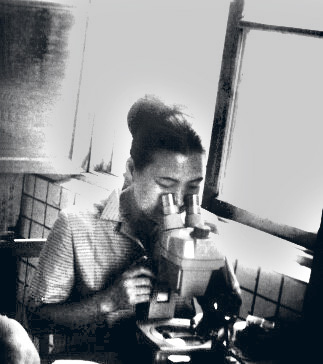It’s not a stretch to say that Joung-Soon Kim, MD, BSPH ’63 (MPH), ’67 (DrPH), and the newly formed country of South Korea grew up together as the war-torn nation was rebuilt.
The disease, destruction, and hardship that accompanied the reconstruction left no one untouched. It’s why Kim — who attended high school in an army tent in Busan, Korea, and grew up in the aftermath of the Korean War during the 1950s — wanted to become a doctor. Her goal was to help others, particularly those from underserved communities with limited access to medical care.

Years later, during her residency at the Denver General Hospital in Colorado, a virology professor steered her toward public health. Public health, she came to realize, would deliver the biggest impact on her fellow Koreans’ health.
In a recent email exchange, Kim says she enrolled at the Johns Hopkins School of Hygiene and Public Health because it was “the most prestigious, the pioneer in the field, and thus was my first choice to continue my professional studies.”
Her decision was life-changing. The school’s scholarship and stipend awards were critical, but so was the unparalleled personal and professional mentorship. “Initially I planned to go to New York City Hospital with my MPH, but my decision to stay for the DrPH was greatly impacted by my mentors, who had a deep understanding of the public health issues Korea faced.”
Kim’s doctoral thesis adviser, pathobiologist Frederik Bang, had served as an Army medical officer during World War II and led the fight against parasitic diseases in the Pacific Ocean military theater, including Korea. He assisted Kim as she developed her thesis on ways to control parasitic diseases in the ecologically isolated Korean landscape.
Pathobiology, then a relatively new field, opened Kim’s eyes to the ecosystems that were fundamental for the spread of diseases. Whereas epidemiology — her initial focus — centers on human population health, the pathobiological approach elevates the importance of animal and insect population health as well. Pathobiology’s concept of interconnectivity of all living organisms felt revolutionary to Kim.
She remains grateful to the many people who helped her along her journey, particularly Bang who set her on the path to the DrPH degree. Kim recently gifted the Bloomberg School’s W. Harvey Feinstone Department of Molecular Microbiology and Immunology funding to create the Frederik Bang Fellowship Fund in honor of her adviser and friend. The fund will help other doctoral students, particularly those from underdeveloped countries, who focus on improving the public health of their home nations.
Bang’s guidance shaped her career not only by conveying the scope and scale of public health, but also by modeling the qualities of good teachers. Kim recalls how Bang “persuaded me that a good professor of public health can be a greater help for a developing country than a physician because one public health teacher can train hundreds of public health professionals. He also taught me to be a better teacher because he recognized my hubris and taught me to leave it at the door when entering a class or lecture room.”
Decades before the Bloomberg School’s vision statement, “Protecting Health, Saving Lives — Millions at a Time,” was developed, Bang and Kim were already committed to that work, shaping the healthier South Korea that would rise from the war’s rubble and refugee tents.
In reflecting on her life experience — from her time in the Busan camps as an eager-to-learn student to serving as chair of the Seoul National University School of Public Health (SNU-SPH) Epidemiology Department for 29 years — Kim is proud to have had a role in building South Korea’s public health system.
After earning her DrPH, Kim returned to Korea in 1967 and joined the Department of Epidemiology faculty at SNU-SPH, which had just been established in 1959. Over her 33-year career, Kim was a committed educator and researcher, publishing over 250 papers, including an ecological study for eradication of paragomiasis and filariasis — both human infections caused by parasitic worms.
Kim was the first to identify several infectious agents responsible for epidemics occurring in Korea including Legionella, Leptospira, and the laboratory strain B. anthracis (Anthrax). Additionally, after medical doctors in the Philippines and in Japan incorrectly diagnosed an epidemic of weight loss and vomiting among sailors on Japanese cargo ships (as hepatitis, leptospirosis, even influenza), Kim determined it was caused by lead poisoning from drinking water stored in a cargo ship’s tanks.
As one of only a handful of women in the field of public health in the ’60s, Kim was a pioneer, both in the U.S. and in South Korea, but she brushes off questions about any sexism or racism she may have experienced. What kept her focused was knowing she was on track to teach the teachers, “SNU-SPH alumni now serve in the field in full capacity across South Korea, addressing major national-level public health concerns,” she writes. “I had many female students, many of whom are now professionals in the field. I would like to believe that I served as a role model for them as they continue to serve as role models for future generations.”
This story first appeared on the Bloomberg School of Public Health website.
Interested in supporting public health students from underdeveloped countries?
Topics: Alumni, Faculty and Staff, Bloomberg School of Public Health, Support Scholars